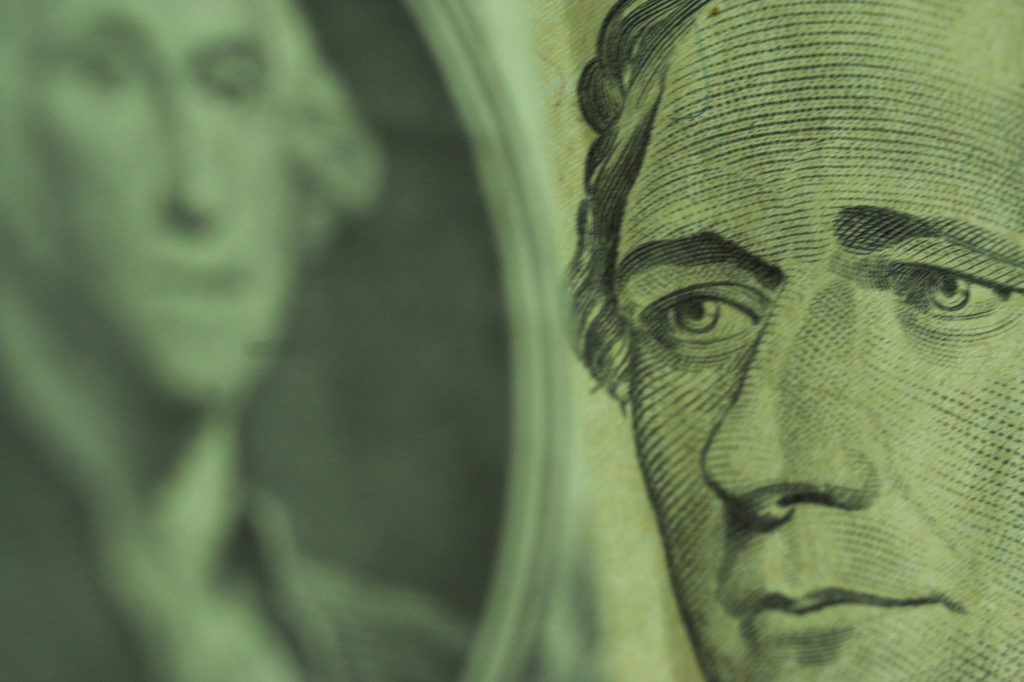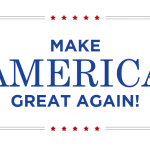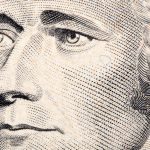Our politics involves an unavoidable paradox. Modern democracies are founded on a recognition of human equality, yet they require human inequality if they are to flourish. Democracy insists that each citizen should have an equal say in the nation’s affairs, but experience teaches us that democracies cannot be well-governed—cannot, perhaps, even survive—without the leadership of great statesmen, individuals who are recognized as far superior to the ordinary citizen in their commitment to the common good and their understanding of how it is to be secured. Governments founded on the equality of all would not exist today without the extraordinary contributions of superior men like Abraham Lincoln and Winston Churchill.
We may sense—rather uneasily—that our democracy needs such figures now, even though there do not seem to be any on hand. In any case, we know that we will need them at some point in the future. But how can we go about getting them?
True greatness cannot be created on command in politics any more than in any other field of human endeavor. A Lincoln or a Churchill—like a Bach, a Shakespeare, or a Plato—is to some extent an unlooked-for gift of providence. Nevertheless, we can do something at least to foster the conditions under which such greatness has a better chance of appearing. The first, crucial step in this direction would be simply to understand political greatness correctly. It will be difficult, after all, for anyone to aspire to political greatness in a public culture that denies it or distorts its character.
Understanding True Human Greatness
Start your day with Public Discourse
Sign up and get our daily essays sent straight to your inbox.Here, however, we often fail, being led astray by two opposite errors. As in so many things, we go to extremes of opinion, missing the truth that lies in between.
On the one hand, we often indulge the democratic tendency to tear down the great, to seek out and magnify their flaws, to minimize or deny their virtues. We do this to reassure ourselves—in the face of the evidence before our eyes—that we really are all equal not only in our rights, but in our capacities as well.
This tendency is to be resisted not only because it is false—it is obvious that some people make contributions to the common good that exceed those made by others—but also because it undermines the aspiration to the greatness that we need. The potentially great are still human, after all. Men like Lincoln and Churchill were not above human praise. On the contrary, they loved honor and wanted to make contributions for which they would be esteemed by their fellow citizens. Those souls who long for such honor will not rouse themselves to exertion on behalf of the common good if they see great statesmen belittled, and greatness itself debunked.
We can successfully resist this democratic, leveling tendency because admiration for human greatness is rooted in human nature. When our minds are not distorted by ideology or resentment, most human beings will admit, readily and gratefully, that some of their fellows excel in some important endeavor. We even take pleasure in doing so.
Here, however, we encounter the opposite danger. Our natural attraction to human greatness often leads us to exaggerate it. We are given to hero worship.
This error may tempt even those who pursue the philosophic study of politics. We read, for example, Aristotle’s account in his Nicomachean Ethics of the magnanimous or great-souled man—the man who believes himself worthy of the highest honors of the community because he really does deserve them. In other words, such a man has confidence in his ability to care for the community’s most important needs because he really does possess the ability. Charmed by the grandeur of Aristotle’s portrait, we may imagine such a man to be utterly self-sufficient, having within himself all that is needed to serve and even save the nation. Perhaps we are inclined to project such completeness or perfection on great men because we are acutely aware of—and indeed frightened and humiliated by—our dependence, contingency, and fragility, and therefore want to believe in the possibility of human self-sufficiency.
This grandiose vision of political excellence, however, is no less hostile to the development of real greatness than the democratic denial of its existence. It sets a standard of greatness that no actual human being could achieve. It therefore must end in disillusionment. Ultimately, it discourages us from striving after the kind of greatness that a human being really can achieve.
The truth of the matter is found, as usual, somewhere between these false and pernicious extremes. Great individuals really do exist. There are human beings who excel in virtue and ability, citizens to whom the community owes far more honor than it owes to its ordinarily decent and useful members. On the other hand, such figures are not utterly self-sufficient. They owe their greatness in no small measure to the assistance of others.
Aristotle himself reminds us of this and thus corrects the misunderstanding that we might derive from his portrait of the great-souled man. To be humanly self-sufficient, he teaches, lies not in not needing anyone or anything but rather in having the things one needs for a fully human life—including other human beings: family, friends, fellow citizens.
Washington and Hamilton
This lesson in truly human, collaborative greatness is brought home to us in the context of our own regime and our own history by Stephen Knott and Tony Williams’s excellent study, Washington and Hamilton: The Alliance that Forged America. Founding a new nation—founding, indeed, a new kind of nation: the first modern republic—is an act of political greatness by any measure. As Knott and Williams’s title reminds us, and as their book amply demonstrates, this great achievement was possible only on the basis of the close cooperation of our first president and his chief minister, our first secretary of the treasury.
The great statesman requires the help of others because the common good and its concrete requirements are so complex as to be beyond the grasp of any single person, however excellent. Here, as Edmund Burke points out, the great may actually benefit from the assistance of the quite ordinary. Burke observes in his Reflections on the Revolution in France: “I have known and, according to my measure, have cooperated with great men; and I have never yet seen any plan which has not been mended by the observation of those who were much inferior in understanding to the person who took the lead in the business.”
If this is the case, then the great statesman will surely also often require the advice of the brilliant policy expert. This was certainly the case with George Washington. Washington was better equipped than any other American to be the first president of the United States, both by temperament—his steadiness and prudence were unmatched by any other politician of the day—and by reputation—no one else enjoyed the confidence of the whole people as he did. For the new government to succeed, it needed as its first president a man that the whole country would trust. Only Washington had such trust, and so he was truly the “indispensable man.”
Yet the success of the new republic needed other things as well. It needed a restoration of the government’s credit, which in turn depended on the design and implementation of a plan to begin paying the nation’s debts. It needed a modern system of public finance, including a national bank. Washington saw the need for such things, but he did not himself possess the knowledge necessary for their creation. For that, he had to turn to Alexander Hamilton. For his part, Hamilton probably possessed this knowledge more completely than any other founder. Certainly, he alone possessed the combination of knowledge, energy, and determination necessary to be, under Washington’s direction, the nation’s financial founding father. In this way, Hamilton was also an indispensable man.
This is not, however, the full extent of Hamilton’s contribution to Washington’s greatness. Washington depended on Hamilton not only for technical expertise but also for a kind of moral support. The virtue of even a great man will always be imperfect. Washington, for all of his genuine moral excellence, had a certain flaw or limitation: an excessive tenderness about his reputation. At a critical hour in the nation’s history, that tenderness threatened to bar Washington from the very post, the presidency, that he alone could fill successfully.
Washington had retired once from public life, at the end of the Revolutionary War. He feared that his re-entry into politics would provide ammunition for those who might say that underneath a veneer of detachment he really hankered after power, that his earlier retirement had been merely a show of virtue without the substance. In response, Hamilton told Washington that he had a duty to act as president, precisely because no one else could command the public confidence, and that his doing so would in the end enhance and not undermine his public reputation.
Here, Hamilton made a key contribution to Washington’s greatness. The presidency was the stage on which Washington’s excellence could reveal itself completely. Yet Washington might never have taken that stage, or revealed that excellence, in the absence of Hamilton’s urging.
We would err, however, if we viewed Hamilton as nothing more than a prop to Washington’s greatness. As Knott and Williams remind us, Washington and Hamilton’s relationship was an “alliance,” a partnership between equal though very different men. Hamilton was in his own measure a great statesman, and his greatness likewise depended on his association with George Washington.
Hamilton would never have had the opportunity to put his considerable talents into operation if those talents had not been recognized and put to work by Washington, who selected Hamilton first as his aide-de-camp during the revolution and later as his secretary of the treasury. Moreover, Washington displayed an impressive virtue in discerning and enabling Hamilton’s virtues.
Washington was astute, but Hamilton was brilliant. Washington was literate, but Hamilton was steeped in knowledge of the law, history, political economy, and diplomacy. As Knott and Williams observe, Washington, unlike lesser men, possessed the self-confidence not to be intimidated or put off by Hamilton’s genius. Instead, he put it to work for the good of the country.
Washington not only gave Hamilton the opportunity to display his virtues; he also made Hamilton better, politically speaking, than he could be on his own. For all of his brilliance, Hamilton’s vehement nature sometimes led him to ill-considered actions. His great political blunders—such as his needlessly detailed public confession of adultery, along with his later attack on his Federalist ally John Adams in an election year—were committed when he was no longer under Washington’s direction. Hamilton’s rare energy and intelligence were rendered more beneficial to himself and to the country when they were governed by Washington’s steadiness and prudence.
We need to reflect on and learn from Washington and Hamilton’s lesson in collaborative greatness, because we need such collaborations in our own time. Their alliance forged our nation, and we will need similar alliances to preserve it and ensure its flourishing.
Carson Holloway, a political scientist, chairs the Council of Academic Advisers of the Heritage Foundation’s B. Kenneth Simon Center for Principles and Politics and is the author of Hamilton versus Jefferson in the Washington Administration.














